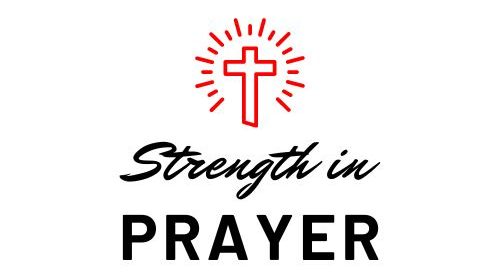
In the Bible, the story of Job stands as a testament to human suffering and resilience. Job, a righteous man, faced unimaginable trials that tested his faith to the core. In this article, we’ll review the list of things that happened to Job in the Bible. His experiences serve as a timeless lesson about the complexities of life and the nature of divine providence.
Throughout his journey, Job’s unwavering commitment to his beliefs serves as a beacon of hope and inspiration for readers across generations. The narrative of Job’s trials and eventual restoration offers profound insights into the human condition and the workings of the divine.
List of Things That Happened to Job in the Bible
One of the main reasons for studying the list of things that happened to Job in the Bible is for us in the modern age to draw insights from it and understand the moral of the story of Job.
So here are the trails and experiences that Job underwent:
#1. Job’s Prosperity
Job was a man blessed with abundant wealth and prosperity. Scripture describes him as “the greatest of all the men of the east” (Job 1:3, ESV). He possessed vast herds of livestock, a large family, and a thriving household. Job’s prosperity was evident in his material possessions and social standing, reflecting God’s favor upon him.
#2. Satan’s Challenge
Satan, the adversary, questioned Job’s loyalty to God, suggesting that Job’s faith was merely a result of his comfortable circumstances. Satan challenged God, saying, “Does Job fear God for no reason?” (Job 1:9, ESV). Thus, a test was set in motion to prove the sincerity of Job’s devotion amidst adversity. Satan’s challenge initiated a sequence of events that would test Job’s faith and resilience to the core.
#3. Loss of Wealth
In a series of calamities, Job experienced the sudden loss of his wealth and possessions. Raiders plundered his livestock, and fire consumed his sheep and servants, leaving him financially devastated. Job’s once prosperous estate was reduced to ruins, marking the beginning of his trials. Despite his immense loss, Job remained steadfast in his faith, refusing to curse God.
#4. Loss of Family
Tragedy struck Job’s family when a mighty wind swept through his eldest son’s house, causing it to collapse and kill all of Job’s children. This devastating loss brought profound grief and anguish to Job, who mourned the untimely deaths of his beloved sons and daughters. Job’s anguish was compounded by the sudden and tragic loss of his entire family, leaving him to grapple with overwhelming sorrow.
#5. Affliction of Health
As if his losses weren’t enough, Job faced severe physical afflictions. Boils broke out all over his body, causing excruciating pain and discomfort. Job, once robust and healthy, now suffered in agony, his body afflicted with sores, adding to his already heavy burden of suffering. Despite his pain and suffering, Job refused to forsake his faith, clinging to his belief in God’s righteousness and justice.
#6. The Arrival of Friends
Upon hearing of Job’s misfortunes, three of his friends—Eliphaz the Temanite, Bildad the Shuhite, and Zophar the Naamathite—came to comfort him. Scripture describes their initial response: “And they sat with him on the ground seven days and seven nights, and no one spoke a word to him, for they saw that his suffering was very great” (Job 2:13, ESV). Despite their good intentions, their presence would eventually lead to contentious debates and challenges to Job’s righteousness.
#7. Debate and Discourse
As Job lamented his plight, his friends attempted to provide explanations for his suffering, attributing it to divine retribution for sin. Thus began a series of dialogues filled with philosophical arguments and theological debates. Job vehemently defended his innocence, while his friends insisted on his guilt, leading to heated exchanges and passionate discourse about the nature of suffering and God’s justice.
#8. Elihu’s Speech
In the midst of the debates between Job and his friends, a young man named Elihu interjected with his own perspective. Elihu criticized both Job and his friends for failing to grasp the true nature of God’s ways. He emphasized God’s sovereignty and justice, urging Job to humbly accept divine discipline and trust in God’s wisdom. Elihu’s speech served as a prelude to God’s eventual response to Job’s suffering.
#9. God’s Response
After enduring the arguments of his friends and the counsel of Elihu, Job finally received a direct response from God Himself. God spoke from the whirlwind, declaring His incomprehensible power and wisdom. In a series of rhetorical questions, God challenged Job’s understanding of the universe and reminded him of the limitations of human knowledge. Through this encounter, Job gained a deeper reverence for God’s majesty and a renewed sense of humility.
#10. Restoration
In the end, God vindicated Job and restored his fortunes twofold. Scripture records, “And the Lord restored the fortunes of Job, when he had prayed for his friends. And the Lord gave Job twice as much as he had before” (Job 42:10, ESV). Job received abundant blessings, including new livestock, children, and a long life. His story serves as a testament to the faithfulness of God and the eventual reward for steadfast devotion amidst suffering.
Closing Thoughts
The story of Job in the Bible is a profound exploration of human suffering, faith, and divine providence. Through Job’s trials and tribulations, we are reminded of the complexities of life and the enigmatic nature of God’s ways. Despite enduring unimaginable hardships, Job remained steadfast in his faith, ultimately finding redemption and restoration. His story serves as a timeless reminder that even in the darkest of times, faith and perseverance can lead to eventual blessings. May we draw inspiration from Job’s example as we navigate our own challenges and seek understanding in the mysteries of God’s plan.
